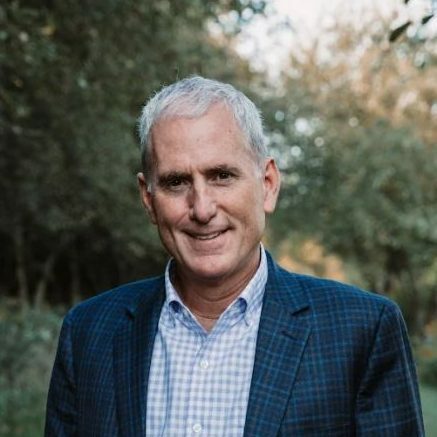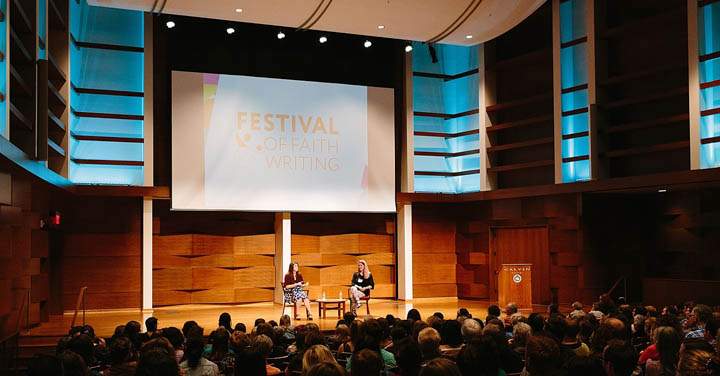Here’s my takeaway from the 2024 Festival of Faith and Writing.
The Calvin Center for Faith and Writing offers this biannual conference celebrating spiritual writing. Occurring in April at Calvin University, Grand Rapids, MI, there is always a literary and sometimes academic bent to the sessions that offer up poets, novelists, and those who more formally practice spiritual or topically religious writing.
There are also a lot of publishing people, like me, who show up to see each other as authors, literary agents, acquisitions editors, author coaches, and more—a scene that felt a little more vibrant this year perhaps especially because this was the first in-person festival since before the pandemic.
One of the unique things about the festival is that its base market and sponsoring university is, to put it one way, conservative evangelical. And yet this conference is also politically purple and theologically varied.
These are after all people who read a lot of books, some even well outside any Christian bubble.
These are after all people who read a lot of books, some even well outside any Christian bubble. No one who reads this much and so widely can survive long as a fundamentalist. Also, in the exhibitor space, there were both evangelical and mainline denominational publishers. There were magazines like both Christianity Today and The Christian Century.
The organizers of the conference also thoughtfully included a component they called “lunch circles,” where people could gather over two days’ worth of lunches in the school dining hall and talk about something related to writing. There were more than twenty-five groups, from writing on Substack to publishing for women of color. You can learn more here.
I was granted the opportunity to lead a lunch circle I called “Writing for Religious Nones, Exvangelicals, and the Spiritual Not Religious” (to that, I would add post-evangelicals, those who are still investing in faith communities but are intending to be inclusive, affirming, and justice-oriented). I was told that my group was one that filled to a capacity of twelve, which granted me free registration (my thanks to the organizers).
I came prepared to present and lead a discussion in three main parts: the evidence for what is best called the deconstruction movement, the pain points of this movement, and the unarticulated spiritual themes that the curious, the writers, and the community leaders and participants might want to know.
Something to know about me is that I work both as a publisher and as a literary agent, not to mention an author. I can do this combination of professional pursuits because I focus almost exclusively on the audience described by my lunch circle title. Also, the skill sets overlap.
In the first section of the discussion–about the evidence for the movement–I came prepared with a list of manifestations. So, over salads and beef stroganoff in the noisy cafeteria, I tried to talk about:
-
- sociological research on religious disaffiliation and declining church attendance
- the community formed in social media spaces in recent years, including some recent social media accounts that are simply massive
- the proliferation of podcasts, some of which come and go and others that have staying power
- documentaries on the abuses of conservative evangelicalism, perhaps especially Shiny Happy People and Pray Away
- conferences like Wild Goose, Evolving Faith, Theology Beer Camp, The Post Evangelical Collective, and one of the most unique, Content Warning
- the movement of so many therapists, coaches, and support groups now addressing religious trauma and spiritual abuse
- the phenomenal Our Bible App, singlehandedly created by Crystal Cheatham
- while sorely missing a focused online magazine for this space, the upstart independent book publishers like Lake Drive Books, Quoir, Cyclical Publishing, and Wildhouse Publishing
- and finally, the numerous books coming out (follow me on socials to hear about more coming), one even a recent New York Times bestseller, all of which eclipse anything we’ve ever seen.
But here’s the thing: I had only made it through only about half of the above list when I noticed people’s eyes glazing over.
At first, I felt a little unsettled that they were losing interest or perhaps were feeling resistant to what is a growing countermovement to so much of what they believed and in which they were invested. I get that a lot. But as we moved into the section about pain points, I could see it was something else, something simpler than that.
They just didn’t know about most of it.
I may be speculating here, but it seemed that my participants just weren’t as familiar with all that was going on, much as they may be intuitively connected to it. I was overdoing it, and goodness knows I was probably name dropping and using unfamiliar lingo.
Regardless, we kept going. We moved into the section about pain points, and I talked about the presenting issues like politics, sexuality, gender, race, the pandemic, psychological wholeness, and intellectual integrity. This too seemed a bit of a slow discussion as the group’s sense of these things was indeed present but perhaps not developed into formal language.
That was day one, and honestly, I was a bit discouraged. Having time to think about it, though, I decided to be sure and change the format for day two: I wanted to get them talking. And to no one’s surprise except maybe me, it worked.
As a publishing person, I often try to get authors, and perhaps copywriters, to express the unarticulated needs of readers in the time we live in.
The group didn’t disappoint. They started talking about purpose, authenticity, and a new way to understand what’s sacred. One person even talked about creating a practice for mourning the past people, practices, and institutions of the church, and how we can start investing in something new and different. I mostly facilitated but did chime in about accountability, agency, and wholeness. It was a vibrant, if isolated, conversation. Most everyone contributed and the time went quickly. We finished our lunches and were a bit exhausted.
I understood then that it’s not a matter of proving to people that this movement exists. So many are already here. It simply exists. Just look at how evangelical leaders love to rankle about it, or perhaps just as badly, stay silent about it.
People everywhere, whether inside traditional spaces or in new creative spaces, whether quietly or loudly, are joining in this spiritual work.
It’s important, however, to connect the dots of the evidence, the pain points, and the unarticulated spiritual needs. It’s important to meet people where they are, if they are willing to travel along, even if slowly at times. We’ve created a lot of needed boundaries in the deconstruction movement. We’ve come a long way and found spaces where we can start to heal, grow, and discover, regardless of whether others want to join. But it is still a nascent movement, which in a way speaks about how big if not amorphous it’s become. People everywhere, whether inside traditional spaces or in new creative spaces, whether quietly or loudly, are joining in this spiritual work.
They showed up at this lunch chat in a dining hall at a Christian college, and like one of the dessert options, they found a cafeteria-sized slice. There’s so much richness to discover on the journey ahead.

David Morris is the author of Lost Faith and Wandering Souls: A Psychology of Disillusionment, Mourning, and the Return of Hope. He is the publisher of Lake Drive Books and a literary agent at Hyponymous Consulting, two innovative ventures working together to specialize in authors and books that help people heal, grow, and discover. David holds a PhD in psychology and religion from Drew University. He lives with his wife in Grand Rapids, Michigan, and they have two daughters. Visit davidrmorris.me.


